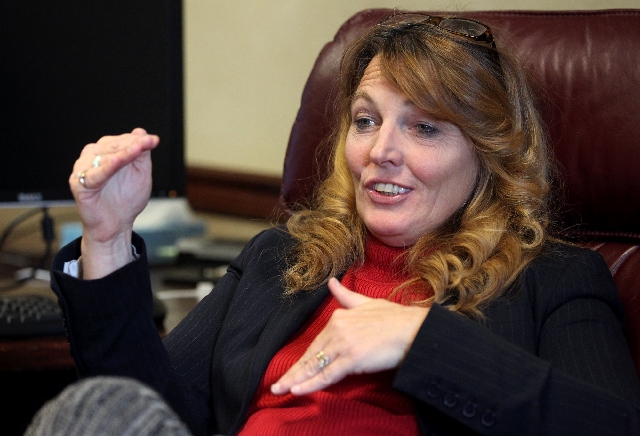Legislators clash over tax on “family fun”

CARSON CITY — Assembly Speaker Marilyn Kirkpatrick said Tuesday she could not predict whether events such as NASCAR and the Electric Daisy Carnival will flee the state because of her proposed 8 percent Nevada Entertainment and Admission Tax.
Instead Kirkpatrick, D-North Las Vegas, told a joint meeting of the Senate Revenue and Senate Taxation committees that everyone has to pay a little to help Nevada with its educational funding problems.
No vote was taken at the hearing.
“At some point you have to be part of the community or not,” Kirkpatrick said. “If I got a nickel from everybody who said they’d move (because of higher taxes) then I’d be wealthy.”
Her Assembly Bill 498 would dramatically change the current Live Entertainment Tax, which generally levies a 5 percent tax on venues with 7,500 seats and a 10 percent tax on those between 200 and 7,499 seats and contains numerous exemptions. Her bill would ban all exemptions except for nonprofit events, but expand the tax to include movie admissions, bowling, golf green fees, minor league baseball games and health clubs.
She speculated the tax would bring in an additional $50 million a year, but said that is only a highly uncertain prediction.
But Tuesday’s three-hour hearing might have been an exercise in futility, since Gov. Brian Sandoval said Monday he would veto the bill that Senate Minority Leader Michael Roberson, R-Las Vegas, also called a tax on “family fun.” Democrats cannot pass the bill without the support of at least four Republicans.
Some speakers echoed Roberson’s comments.
“Is it fair to tax fans and families before we tax owners?” asked lobbyist David Goldwater, who said he represented NASCAR fans and the Electric Daisy Carnival.
He said “working families” and “young people with less of an ability to pay” would end up paying the higher taxes, not the event sponsors.
Chris Powell of the Las Vegas Motor Speedway said NASCAR Week produced $240 million in economic benefits for Nevada in 2012 and the tax exemption they enjoy “keeps largely blue-collar fans from paying the tax.” He said 60 percent of fans have $40,000 to $80,000 annual incomes.
Assembly Majority Leader William Horne, D-Las Vegas, questioned Powell’s stance that the tax would drive away fans.
“Las Vegas is a draw in itself,” he said. “It is a unique venue. NASCAR fans are going to come.”
The proposed tax, however, drew the support of the AFL-CIO and the Retail Association of Nevada.
Carole Vilardo, president of the Nevada Taxpayers Association, also called the proposal “a step in the right direction” because it broadens the tax base and makes a uniform tax rate.
Vilardo, however, added that the movie admission fees and other “real or imagined ” taxes that hurt families should be excised. She noted that when legislators sought a 7.25 percent tax on movie admissions in 2003 that ticket prices suddenly were raised by $2. The tax increase never was approved.
Kirkpatrick said she received only 10 messages from people about the movie tax proposal and eight of them opposed it.
Danny Thompson, the state AFL-CIO secretary-treasurer, said that at a time when Nevada has the highest school class sizes and the lowest graduation rates in the country, “everyone has to start paying something.”
Contact Capital Bureau Chief Ed Vogel at evogel@reviewjournal.com or 775-687-3901.












